|
“Jesus, let there be more of you and less of me.” This is the short prayer I was once encouraged to pray as a penance by a wise, older priest. As we find ourselves at the start of Lent, these words once again come to mind, and I would like to offer them for your contemplation. The Church offers the season of Lent as an opportunity to prepare Her children well for Christ’s resurrection–both at the celebration of Easter (March 31 this year) and at His Second Coming. These preparations take the form of prayer, fasting, and almsgiving; the spiritual, penitential, and charitable practices we take up and the worldly things we put down. For forty days we walk into the desert, just as Jesus did, to humbly open ourselves to temptations and more fully offer our lives to the Lord. So what does that prayer–letting there be more of Jesus and less of me–have to do with Lent? Well…everything. In the first reading at Mass on Ash Wednesday, the prophet Joel extols us: “Rend your hearts, not your garments, and return to the LORD, your God” with your whole hearts (Joel 2:12). The Lord does not want to see what we can do of our own strength or will during this season; He wants us to see what He can do through us and the transformation He can work within us. Lent certainly calls for a degree of testing the limits of our comfort zones. More than this, it is an invitation to leave behind our will and consider the offerings and changes that will help us become more like Christ. As you reflect on your Lenten practices, consider asking yourself: “What can I offer to Jesus? How can I make more room for Him in my life? What can I let go of that will help me on this journey?” Approaching Lent in this way necessitates an act of surrender. It requires us to focus less on the material outcomes and more on the spiritual. This might mean to not give up ice cream like you do every Lent and instead, or additionally, prayerfully consider what areas of your life you have been keeping the Lord out of. St. John Henry Newman speaks to this in a sermon for the First Sunday of Lent: “...fasting is only one branch of a large and momentous duty, the subdual of ourselves to Christ. We must surrender to Him all we have, all we are. We must keep nothing back.” This, admittedly, is a challenging invitation, but remember that we are not doing Lent on our own. We are doing it with Jesus. This act of surrender necessitates reliance. And this reliance requires humility; an admission of our own weakness and powerlessness compared to Christ’s great strength. When you want to snooze your alarm and eschew the morning prayer time you’ve committed to, offer that to the Lord. When you are tempted to join in the office gossip, ask for Jesus’ strength. Ordinary as these offerings may be, that does not mean they are easy. If we have chosen to subdue ourselves for Christ’s sake, we can trust that He will provide the grace and strength we lack. As Catherine Doherty writes in Season of Mercy, “Mortification and penance are a passionate response of a man to a Passionate Lover who is God.” In humbly striving to more fully do the will of the Father, we naturally make more room for Jesus. As you surrender yourself to Him this Lent, also rely on Him. He wants us, and the attachments that bind us, to shrink away only so that His mercy and love can reign more completely. “Jesus, let there be more of you and less of me.”
0 Comments
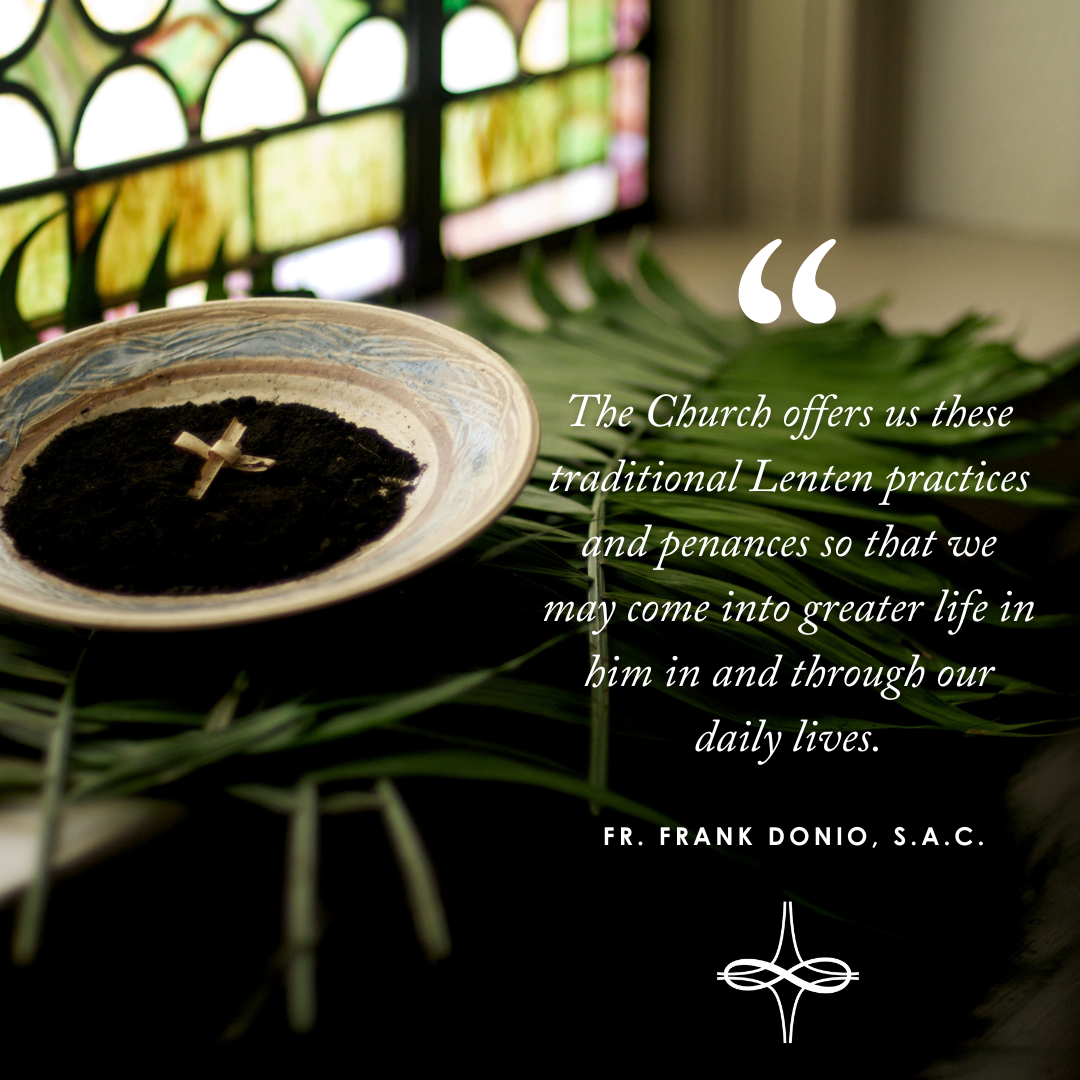 Lent is not a diet program nor is it a spiritual competition. Prayer, fasting, and almsgiving are means to an end, not ends in themselves. They are the recommended ways for us to deepen our encounter with Christ and grow in holiness. We seem to know this but when a food that we have given up for Lent is placed before us, do you say, “NOOOO, I have given it up for Lent!”? Of course, this is an exaggeration to make a point. Pope Francis in his 2023 Lenten Message focuses us on the purpose of penance during Lent. “Lenten penance is a commitment, sustained by grace, to overcoming our lack of faith and our resistance to following Jesus on the way of the cross. To deepen our knowledge of the Master, to fully understand and embrace the mystery of his salvation, accomplished in total self-giving inspired by love, we must allow ourselves to be taken aside by him and to detach ourselves from mediocrity and vanity. We need to set out on the journey, an uphill path that, like a mountain trek, requires effort, sacrifice, and concentration.” Prayer, fasting, and almsgiving do take “effort, sacrifice, and concentration.” They are also “sustained by grace.” We cannot fool ourselves into thinking that we are doing this on our own. What we are doing is cooperating with the grace of Christ who wants us to deepen our encounter with him. The Church offers us these traditional Lenten practices and penances so that we may come into greater life in him in and through our daily lives. As Pope Francis reminds us, “While our ordinary commitments compel us to remain in our usual places and our often repetitive and sometimes boring routines, during Lent we are invited to ascend ‘a high mountain’ in the company of Jesus and to live a particular experience of spiritual discipline – ascesis – as God’s holy people.” May the charity of Christ urge us on! In God, the Infinite Love, Fr. Frank Lent is not a diet program. Yes, the Church recommends the ascetical practices of prayer, fasting, and almsgiving. These, though, are meant to help us love God and neighbor more fully. Pope Francis in his homily for Ash Wednesday offered this consideration: “Lent is a journey that involves our whole life, our entire being. It is a time to reconsider the path we are taking, to find the route that leads us home and to rediscover our profound relationship with God, on whom everything depends. Lent is not just about the little sacrifices we make, but about discerning where our hearts are directed. This is the core of Lent: asking where our hearts are directed.” Where is your heart directed? Is it a divided heart? It is easy to compartmentalize. Or so it seems. Eventually, trying to live life in two directions tears us apart. “Our entire being” needs to be engaged, not simply part. We can pray, fast, and do almsgiving, but still be unconverted within. These acts are a means to an end, not an end in themselves. These “little sacrifices” should sharpen our minds and open our hearts more fully to a life directed toward God and neighbor. If they are done simply for us to feel a sense of accomplishment or as a test of our will, then their focus becomes about us. How do we go forward? By realizing that “everything depends” on God, not on us. Once we do, and cooperate more fully with the grace of Christ, our hearts will be undivided, united in love with God and neighbor. May the charity of Christ urge us on! For more resources to accompany you during your Lenten journey, please click here.
The ashes of our Lenten journey were more pronounced this year—not fading with Ash Wednesday but thickening in the following weeks with the outbreak of COVID-19. Each of the plans we had for Lent—the sacrifices, the resolutions, the acts of charity—were rearranged, making room for more sacrifices than we thought possible. We sacrificed control, physical freedom, the assurance that our pantries would be stocked or that our bank accounts would be replenished. We sacrificed our physical friendships, birthday celebrations, anniversary milestones, family vacations, date nights. We’ve lost friends, family, or neighbors to a virus that until a few months ago was hardly known about or discussed. We’ve sacrificed our liturgical lives, being able to receive Christ’s Body and Blood in the Eucharist, attendance at weddings or baptisms, pastoral formation, the journey into the Church on Easter via RCIA. Pope Francis likens this pandemic to the evening storm experienced by the disciples in the boat, saying, “For weeks now it has been evening.” This evening has been long, dark, full of the unknown. Throughout this “evening,” we have had to confront our vulnerabilities and experience our littleness. We’ve had to realize that without light, we cannot see. Perhaps we’ve grappled with fear in this darkness—a fear of the unknown, a fear of isolation, a fear that the dawn may never come. Perhaps our minds have been left to imagine: Lord, “Do you not care that we are perishing?” This time of quarantine, social distancing, and pandemic has been our evening storm which, “Exposes our vulnerability and uncovers those false and superfluous certainties around which we have constructed our daily schedules…shows us how we have allowed to become dull and feeble the very things that nourish, sustain and strengthen our lives and our communities… [and] lays bare all our prepackaged ideas and forgetfulness of what nourishes our people’s souls.” We thought “we would stay healthy in a world that was sick,” but the storm has awakened us from our personal slumber. And we need light. This realization is the seed of faith—a faith which recognizes the need for salvation, for one another, for the light of God. The realization of our littleness, our helplessness, our dependence, our mortality, is the perfect place from which to enter into the Triduum and await the lighting of the Easter candle—the Resurrection of Jesus Christ. God has provided flickers of hope, reflections of grace, throughout our journey at sea: livestreams of Masses, daily Scripture reflections, broadcasts of Adoration, priests hearing Confessions in drive-thrus, virtual retreats, Pope Francis’ blessing of the entire world. We have seen a “creativity of love”--the production of ventilators in car factories, the making of masks in workplaces, the donations of money, food, and supplies across the world, the video chats to those in quarantine facing death alone. We see dancing from porch balconies. Teddy bears in windows. Embraces in hospitals. Birthday drive-bys with signs and honking. People on their knees. Yes, the light of Christ exists even in the darkness. And the darkness has not, and will not, overcome it. It will shine ablaze all the more radiantly this year in the midst of our utter darkness, sparkling in the gloom. The darker the night, the better able we are to see the light. And in the darkness, we look up. Let us welcome the light of Christ this Easter by first lighting his love in our hearts. When Christ’s life lives within us, we can enkindle it in the souls of others and set alight all we encounter. “Prayer and quiet service: these are our victorious weapons,” Pope Francis reminds us. Wake up, Lord! The disciples shouted in the midst of the storm. Wake up, Lord! The world shouts again today. Let us awaken the Lord through our prayers and service. Through our acts of charity to those suffering, tired, or scared. Through our cries and supplications. Through our fasting in these unwelcome sackcloths and seemingly perpetual ashes. Cry out with me again this Triduum, “Wake up, Lord! We are perishing.” Christ’s response to our cries this week is open arms embracing us through nails and scourging. His response to our cries is a head beaten, bruised, and crowned with thorns. His response to our cries is silence to jeers, taunts, mockery, and abandonment. His response to our cries is the relinquishing of his spirit in atonement for our sins and those of the whole world. He who cried out to his Father, “my God, my God, why have you forsaken me?” also knows the darkness intimately. He knows what it feels like to be alone and perishing. But by his words do we find the light: “Why are you terrified? Do you not yet have faith?” ….“My Father…not as I will, but as you will.” Our cries are never unheard. “The Lord awakens so as to reawaken and revive our Easter faith,” Pope Francis said. “We have an anchor: by his cross we have been saved. We have a rudder: by his cross we have been redeemed. We have a hope: by his cross we have been healed and embraced so that nothing and no one can separate us from his redeeming love.” The goal of our Lenten journey is transformation—to be transfigured. This is also our prayer throughout this pandemic. Yes, we pray that it ends, that healing comes, that daily life can resume, that economies will be restored, and that suffering will cease. But even more than all of that, we pray for transfiguration. Because when we are transfigured by the love and light of Christ, when our faith has awakened and we have realized our need for salvation, then the storm can rage on while we rest knowing we will not perish—for we will know deep in our hearts that with the “dawn there is rejoicing.” Then, and only then, “In the silence of our cities, the Easter Gospel will resound.” For more Easter and Lenten resources, please click here. For more resources and reflections on COVID-19, please click here. “Let us allow ourselves to be loved, so that we can give love in return. Let us allow ourselves to stand up and walk towards Easter. Then we will experience the joy of discovering how God raises us up from our ashes.” -Pope Francis (Ash Wednesday Homily, 2020)
Today is the Solemnity of the Annunciation of the Lord. Due to COVID-19, we might believe that we have returned to Ash Wednesday and everything is reduced to ash, even our practice of the faith. Our daily lives have changed or are changing in ways never seen before. But we Christians are people of hope. Hope in God who provides. With the message of the Angel Gabriel that she had conceived the Son of God by the Holy Spirit, the life of the Blessed Virgin Mary changed in a way never known before or since. She trusted, in the love of God that is ever abiding. It gave her the strength to say yes in faith. Love and faith that bore hope, our Hope, Jesus Christ. Our prayer and support for one another, especially in this challenging time, are ways in which we can show the love of Christ toward others, witness our faith, and live hope. In and through our hope in Christ, we at the Catholic Apostolate Center offer our prayers for you. Unprecedented things are happening. While we are being asked to physically stay apart, we can all be connected through technology, but also through the Holy Spirit who connects us all, especially in our prayer. There are many good opportunities to keep the flame of faith alive in our hearts, minds, and actions. The Center has compiled numerous ways to do so on a special resource page where we are also accepting prayer intentions. Let us use this time as wisely as we can, whether together with our family or community or in personal reflection. Christ our hope is with us. We are called to follow the example of Mary and have trusting faith in him. May the Charity of Christ urge us on! To listen to this as a podcast, please click here. “And a sword will pierce through your own soul also.” -- Luke 2:35 I have a tradition of watching Mel Gibson’s The Passion of the Christ every year, usually on Good Friday. However, this year I decided to watch it on Ash Wednesday to prepare me for Lent. Every time I watch it, something new stands out to me. This year, I noticed with particular clarity how Mary follows Jesus throughout every step of His Passion and, more specifically, the effect it has on Our Lord. Whether it be His arrest, scourging, or His walk towards Calvary, every time He locked eyes with Mary, His energy was replenished and His courage renewed. Granted, this is from a film, but it isn’t that difficult to imagine. The love that Christ had for His mother is beyond anything we can conceptualize. I’ve always found this—and her—to be somewhat mysterious and always a little bit beyond my reach of understanding. But I think reflecting on her title of “Our Lady of Sorrows” can encourage us to suffer well, especially during this Lenten season. Mary, perfectly united with the will of her Son, was always completely open to His grace and His love. Along with this perfect unity, however, came the most intense and acute suffering ever suffered after Christ Himself. It is said by many saints, including St. Ephrem, St. Ambrose, St. Bridget of Sweden, and St. Alphonsus Liguori, that Mary suffered an interior, emotional crucifixion during the Passion of her son. Additionally, due to her sinless nature, the intensity of her suffering during Christ’s Passion was beyond anything we can imagine. St. Bernardine of Siena once said, “the grief of Mary was so great that, were it divided amongst all men, it would suffice to cause their immediate death.” This suffering of Our Lady of Sorrows, so beautifully depicted in the film, is ironically comforting. Mary is the ultimate example of not only how to suffer, but also how it can glorify God if fully embraced. She shows us that even through our suffering we can fulfill the will of God. One can argue that much of her life—beginning with the prophecy of Simeon and continuing through the laying of Christ in the tomb—was lived in some degree of suffering, especially knowing what would befall her Son. But because she was completely devoted to the fulfillment of the will of God, her suffering was redeemed in and through the glory of the resurrection of Christ. The film depiction of Christ looking to His mother is also something we can learn from this Lent. Mary can be a source of strength and encouragement as we continue to do works of prayer, fasting, and almsgiving throughout these forty days. Mary suffered quietly and faithfully. She stood with her Son at the cross until the end, knowing in faith that his Passion and death would fulfill God’s plan and bring salvation to mankind. What can we take from this? Our Lady of Sorrows shows us that suffering well--that is, directed in union with God’s will-- can glorify Him and help us along the path to our salvation. This Lent, as I meditate on her walk with Christ toward Calvary, I am refreshed in the knowledge that our suffering doesn’t need to have a bitter end. If unified with Christ it can, and will, be redeemed in and through Him in eternal life. How can we make our walk through the desert and toward Calvary this Lent look more like Mary’s? As Lent approaches, an internal monologue begins in my head: “Should I give up coffee? I really love coffee…or maybe I should give up sugar and eat vegetables this Lent?” This typically continues until Ash Wednesday when I sort of pick something that seems to be the most manageable, and also the right type of sacrifice for my spiritual life—a Goldilocks “fits just right” version of Lenten observances. This past Ash Wednesday, I was in the midst of my Lenten debate when Father’s homily quickly brought me out of myself. During his homily, he reminded us that Lent is not for our waistlines, for our piety, nor for our chocolate addiction. Lent is for the faithful to remember that we need God and God alone. The biggest inhibitor to the graces of the Easter season is ignorance of our need for salvation! He reminded us that Good Friday’s action means nothing if we do not remember that we are the ones who put Jesus on the Cross by our propensity to sin. I was sitting in the pew feeling as though the wind had been taken from me; I tend to fall into this forgetfulness. The priest continued to challenge us about Lent by sharing some reflections from G.K. Chesterton’s book What’s Wrong with the World. When asked that question, “what is wrong with the world?” one might say “politics,” “relativism,” “the secular culture,” “sickness,” “a lack of love towards fellow man” etc. But G.K. Chesterton’s main point is that we are what is wrong with the world—each one of us. Not because we are inherently bad or evil, but simply because we are fallen human beings who sin. This sin is what is wrong with the world—sin which we choose to commit and therefore bring into the world every time we choose our own way rather than God’s. Father explained that the only way to truly change the world is by looking at ourselves, our sin, our pride, our judgment, our self-pity, our lack of love for our families, friends, or coworkers, and so on. In reorienting our Lent to admitting that we, with the help of God’s grace, are responsible for the change we wish to see, we become not only responsible for our sin, but admit that we truly need a Savior. Father left the congregation with this quote from What’s Wrong with the World: “The Christian ideal has not been tried and found wanting. It has been found difficult; and left untried.” He encouraged us this Lent to truly try the Christian way of life, starting with radically accepting our need for a Savior! As a result, my Lent has looked different this year. Instead of the usual giving up of sweets or coffee, I am trying to take radical responsibility for the things in my life that I normally would point a finger at or blame others for—the things in my day to day that I want to see changed. The times I would like to say, “if this person would stop doing x,” “if my son would sleep through the night,” “if my husband would unload the dishes” have turned it into prayers for those I need more patience with, the choice of gratitude instead of complaining, and small acts of love for my family. And so, as we continue onward in our Lenten journey, let us remember that our choices to sin are what is wrong with the world and praise God because we have a Savior to Whom we can turn each day. For more resources to accompany you throughout your Lenten journey, please click here. In the movie The Farewell, the central plot hinges on the question of an individual vs. communal approach to the burden of end of life care. One of the central characters has cancer, and the issue surrounding the family is whether the person with the disease should know or not. In the US, as the movie acknowledges, such duplicity would not be likely to happen, but in China, where the movie takes place, society often allows for such things because they believe the burden of suffering is to be carried by the family and friends rather than the sick or afflicted. I found that to be a fascinating concept because most of us have experienced the loss of someone due to cancer, and the question of death and mourning is a very present concern to all of us. I would recommend viewing the movie, if for nothing less than to understand the potential hardships of walking with someone who is about to die and with those that love them. Our faith acknowledges that our time on earth is not all that there is, but rather that we are made for heaven and joining God. The Catechism of the Catholic Church declares: “The Christian funeral is a liturgical celebration of the Church. The ministry of the Church in this instance aims at expressing efficacious communion with the deceased, at the participation in that communion of the community gathered for the funeral, and at the proclamation of eternal life to the community (CCC 1684).” As Catholics, we believe that there is life after our life on earth. So the funeral and death itself serve as reminders of the Paschal Mystery and our hope for all—and in particular, those who have just died—to have eternal life in heaven with the Lord. The prayer spoken while receiving ashes on Ash Wednesday is a poignant reminder of this: “Remember you are dust and from dust, you shall return.” Time on earth is fleeting, but time in heaven is eternal. As Catholics, we are part of a community of believers. We must not only accompany the one who is preparing to die, but also those who the deceased is leaving behind. This is not the responsibility solely of the priest or deacon presiding over the funeral rites, but rather a shared responsibility of all the church. The Catechism goes further to explain that funeral ceremonies have the Eucharistic Sacrifice as a critical component because: “It is by the Eucharist thus celebrated that the community of the faithful, especially the family of the deceased, learn to live in communion with the one who ‘has fallen asleep in the Lord,’ by communication in the Body of Christ of which he is a living member and, then, by praying for him and with him” (CCC, 1689). It is essential as a community of faithful to also accompany those left behind who are grieving the loss of a loved one. This grief is normal and completely human, but it means that we need to accompany those grieving and serve as a living reminder of Christ’s presence in their lives. We are called to serve as witnesses to those we encounter daily, whether we know them well or not. As stated in the book the Art of Accompaniment: Theological, Spiritual, and Practical Elements of Building a More Relational Church: “Witnessing can be effective even if a deep, committed relationship is not yet formed…witnessing demonstrates an example of an integrated Christian life within the one who witnesses. … Witnesses are essential to the process of spiritual accompaniment because, ‘modern man listens more willingly to witnesses than to teachers, and if he does listen to teachers it is because they are witnesses (Evangelii Nuntiandi)’ (Art of Accompaniment 16)” Times of suffering and hardship are especially profound moments for evangelization and witness. As a Church, we can offer hope and healing to those who are dying or grieving the loss of a loved one. For more resources on Accompaniment, please click here. Lent starts next Wednesday—do you feel ready for it? Maybe you have your Lenten battle plan prepared and are feeling ready to crush your spiritual and penitential goals this Lenten season. Or maybe you are more like me—you’ve given it some thought but haven’t come up with much yet, and you might just pick something, anything, to do in order to make the liturgical season feel different from the rest of the year.
Either way, I think it’s helpful to take a step back and assess what we plan to undertake for Lent, why we are choosing those things, and how to best go about deepening our relationship with God and embracing the penitential nature of the season. The Church in her wisdom has already given us guideposts for how to structure our spiritual renewal during this season: Lent is known as the liturgical season for “prayer, fasting, and almsgiving.” If we aren’t feeling prepared to dive into Lenten penances, it can be tempting to ask what others are doing and just follow them or commit to doing something that seems appropriate for the season. But as we enter this last week of Ordinary Time before Lent begins, I encourage you to spend time in prayer and quiet reflection to really focus on those areas that you need to work on to grow closer to God and to be a more faithful follower of Christ. Here are some ideas for discerning what to undertake this Lenten season: Prayer Prayer is probably the easiest to take on when deciding what spiritual practice to do for Lent with the intention of continuing afterward. For example, there are “classic” Lenten observances you can easily plug into, like the Stations of Cross, that you can commit to praying regularly. I try to choose my Lenten prayer regimen based on what has been on my heart or what I have felt drawn toward but have yet to act upon. For example, maybe you feel that you don’t know the Bible as well as you would like to. You can check out the daily readings here, or listen to or watch a short reflection on them. Or you can commit to praying the rosary several times a week (or daily), using a Scriptural rosary or iconography to help you focus. Fasting Before I matured in my faith, I thought that “fasting” essentially meant: “One full meal, two small snacks, get through Ash Wednesday and Good Friday and then you don’t have to be hungry during the day for another year!.” Only as a young adult did I begin to understand that we are not called to only fast from food, but also from things that are holding us back from God. I used to fast from chocolates or desserts as my Lenten penance almost every year, whether I had been indulging in them too much or not. Once I tried to fast all of Holy Week because that seemed like the kind of thing that hardcore Catholics would do. Neither of these penances bore much fruit for me because I hadn’t chosen to fast from things that were really impeding my vocation as a follower of Christ. Choosing what to fast from for Lent is probably the most difficult thing for us to choose wisely because it involves serious reflection on our own faults and weaknesses. Do you have a negative way of thinking about certain people because they have wounded you? Do you turn to food as a source of comfort instead of praying? Do you indulge in inappropriate books, movies, or TV shows? Do you spend too much time on your smartphone games, Facebook, or Instagram mindlessly scrolling and occupying your time? Think about some things that might be hindering the deepening of your spiritual life and try fasting from one this Lenten season. Almsgiving Many parishes and dioceses use Lent as a time for special appeals and almsgiving opportunities. I recently came across this idea from a friend: during the season of Lent, she and her family cut back on unnecessary expenditures (like Starbucks or junk food) and donate that money to a local charity that is of particular importance to their family. Others choose Lent as a time to increase their regular weekly or monthly offerings to their parish, and then maintain that new amount for the rest of the year. Maybe you don’t have a lot of expendable income—then perhaps you could donate a few canned or dried foods to your parish’s food pantry or find another way to donate your time or your talents to your parish or local community. In the past few years, I have taken to limiting myself to working on one or two specific things for each of these categories of Lenten penance—things that will help me grow closer to God and that I can see myself continuing long after Eastertide is over. I started doing this after a particularly ambitious Lent during which I had a multi-item, handwritten list of things I was going to do—none of which I maintained past the first two weeks because I was completely overwhelmed and burned myself out. When we reach too high, too fast, we can end up setting ourselves up for failure and not making any progress at all! I encourage you to try to focus on things that are realistic not only during the season of Lent, but that you may also incorporate into your life permanently. For resources to prepare you for the Lenten season, please click here. Holy Week is one of my favorite weeks of the year; each of the days builds with anticipation and I get excited just by the thought of Easter Sunday. Lent is almost through and it’s almost time to be joyful in the Risen Lord. When I was little, I felt this anticipation and excitement too. I would spend Holy Week letting people know that Easter was only a couple short days away—it felt like spring would officially be here as soon as we woke up on Easter Sunday! “The very best holiday of the year” was coming, and I had to get ready for it! Did I fully understand it was Christ that I was waiting for or did I just want to wear my new white shoes for church? Looking back, although it could have been the new Easter shoes, I think my 10 year-old-self would have agreed that I really was waiting for Holy Week as the final stretch to the finish line on a journey that began on Ash Wednesday.
In today’s Gospel reading, we read about moments of betrayal and loyalty. Judas leaves the Last Supper to betray Jesus while Peter in his humanity says that he will never deny him. I find it to be one of the most powerful Gospels of Holy Week. Here’s why: Like Peter, we are called to be disciples whose repentance leads to an experience of God’s forgiveness. Jesus knows that his friends will betray him and that he has limited time left on Earth. On one hand, Judas tries not to be obvious about his deception as he leaves the table, and on the other hand, Peter publicly tells Christ that he will stand by him and never fail him. Ultimately, both men betray Jesus, but it’s Peter who seeks forgiveness and allows himself a second chance. Judas, on the other hand, is overcome with guilt and despairs that his sin is beyond the reach of God’s mercy-- eventually taking his own life. We are like Peter in so many ways! We say we love Christ and that we could never deny him, but at the first sign of pressure we sin and turn our backs on him. How often have we chosen to do something that pulls our hearts from Jesus? It is during Lent—especially during Holy Week—that we recall the pain we’ve caused Christ. This week and each day, Jesus gives us another chance to say to him, “Forgive me; I have sinned.” When Christ meets his disciples after his Resurrection, he asks Peter, “Do you love me?” Let us respond with Peter this Easter, “Yes Lord, you know that I love you!” As Easter approaches, we remember how much we are loved by Christ in his Passion, death on the Cross, and soon to be Resurrection. In these next few days, I challenge you not to say, “Lord I could never deny you!” but instead, “Forgive me Lord, for I have sinned.” Last year on Good Friday, Pope Francis said, “Lord Jesus, always grant us the grace of holy repentance...the spark of hope is lit in the darkness of our despair, because we know that your only measure for loving us is to love us without measure.” This Holy Week, in this time for “holy repentance,” let us make sure to spend these last days in Lent with our hearts preparing for Easter. May we use these remaining days in the desert as a time for forgiveness and allow our hearts to be loved by Christ. May all of our hearts gleam with anticipation for Holy Week and better knowledge of the Risen Lord! “Remember you are dust and to dust you shall return.” We are now over a week into our Lenten journey; the reality has set in. We are questioning our decisions to give up sweets or the snooze button, and we are tired. Perhaps we have even failed a few times. The forty days seem to drag, and the somberness of the liturgical season has made itself known. Yet during the Ash Wednesday service at my parish, our priest was talking about the joy of the season and how our failures are meant to bring us closer to Our Lord. In a word, he talked about the hope of Lent. As someone who would rather stay in the joy and light of the Christmas season, I was really challenged by Father’s perspective, especially now, after my many failed attempts to give up the snooze button. We often focus so much on the “giving up” aspect of Lent that the words joy and hope do not seem to go hand in hand with this season. This is especially true when I think of the phrase that kickstarts our Lenten journey: “Remember you are dust and to dust you shall return.” On a superficial level, this sign on our forehead doesn’t look so good. Where are the hope and joy in having ashes smeared on your forehead? Throughout his homily, Father also encouraged us to change our perspective on the difficult acts of penance we are attempting and instead to live in the reality that this season could be a time of true conversion of heart. Our Lord desires us to be holy! The acts of penance we choose could be the very means He uses to break us of habitual sin and to bring a deeper level of charity into our hearts. Conversion of heart and holiness? I could get behind that; I can see the joy there! The priest did not say “if you fail your resolutions” but “when you fail.” This is a reminder of our weakness and utter dependence on Jesus, who will be making His way to Calvary soon, in Scripture, to save our souls. This dependence on Him will assist in our conversion of heart, considering “we can do nothing without him” (John 15:5). So: it’s alright to fail, but run back to Him. Beg Him for more grace! Now let’s read this sentence from the Ash Wednesday service one more time: “Remember you are dust and to dust you shall return.” Where is the hope there? Father explained that this is the most hopeful reality yet. Ultimately this reminder of our sinfulness and our death paradoxically represents the life we have in Christ, the Resurrection of Jesus, and the hope we have of entering into the Eternal Reward. Even though the phrase seems bleak, it can propel our hope throughout these 40 days. We have something to strive for, to live for, and to love for. Though I have failed at my Lenten resolutions more times than I have not, I pray with the hope that my humanity might be resurrected, that Our Lord may convert my sinful ways, and that I may remember that this liturgical season is less about what I do and more about what the Lord is doing in my heart to get me home. What are ways you need to be renewed in hope and joy? How can you accept the failures that come with penance and run to Jesus this Lenten season? “Remember you are dust and to dust you shall return.” For more resources to accompany you on your Lenten journey, please click here. Lent is fast approaching. Ash Wednesday will arrive with the usual crowds to mark its beginning. Even though it is not a holy day of obligation, many Catholics feel the need to participate in a Mass or service and have ashes imparted upon them. Several of the same, even if they do not go to Mass on a regular basis, will take up the various Lenten disciplines of prayer, fasting, and almsgiving, but particularly fasting in the form of “giving up” something. It is important to consider that there is something stirring spiritually within these brothers and sisters. Those who are very active in the life of faith can either dismiss them or accompany them into deeper life in Christ, in and through his Church. How? By using well the tools of Lent – prayer, fasting, and almsgiving – as ways in which we can witness Christ more authentically to our brothers and sisters and deepen our encounter with him. In his Lenten message last year, Pope Francis made this invitation once again, “Above all, I urge the members of the Church to take up the Lenten journey with enthusiasm, sustained by almsgiving, fasting and prayer. If, at times, the flame of charity seems to die in our own hearts, know that this is never the case in the heart of God! He constantly gives us a chance to begin loving anew.” (2018 Lenten Message) The “enthusiasm” that comes from prayer, fasting, and almsgiving, is not of our own making. It is the work of God and one in which we cooperate. The disciplines of Lent are not ends in themselves. They are means to an end, greater communion with Jesus Christ. We are challenged by these practices to focus our attention not on ourselves, but more fully on God and neighbor. A focus on our neighbor returns us to those who are spiritually searching and arrive on Ash Wednesday or “give something up” for Lent. It means less attention on ourselves and more prayer for them, uniting our fasting with and for them, and giving of our time to them, especially to listen and accompany them back into living more deeply the life of faith. Not an easy task, but a sacrifice that, if lived well and authentically, could assist others in coming to Easter joy! May the Charity of Christ urge us on! For resources to accompany you throughout the Lenten season, please click here. Look around your workspace. What are some of the items you might have on display? A picture of family or friends, a souvenir from your last work trip, a calendar, coffee mug, some inspirational quotes, maybe a post-it note with an important phone number? These are just some of the common items that many of us have all over our work spaces, whether we work in a cubicle, "pod," or office. With so much time being spent in these work spaces, they have begun to take on the look and feel of an extension of our home. Some of us even spend a lot of time trying to curate a certain look - something that will be pleasing to not only ourselves, but those around us.
As Catholics who consider faith to be an important part of our lives (whether you're working in service to the faith or not), we might find some additional items carefully displayed in our workspace, such as a crucifix, rosary, prayer card, Bible, saint figurine, flag, lapel pin, etc. These are just a few items that would "give yourself away" as someone who might be a person of faith, specifically a Catholic. At my desk, I have a collection of busts/statues. They are a portion of my overall collection that includes historical figures. I used to display all of them at work, but when I changed jobs and ended up with a smaller workspace, I decided to be choosy about who got the spotlight in my Catholic “squad.” All popes, the busts include Francis, Benedict XVI, John Paul II, John XXIII, and Paul VI. They sit neatly next to each other, inviting queries from onlookers and co-workers. When I started my new job, my collection became a conversation piece. As I approached my one-year anniversary at work, I started to reflect on the different interactions I've been able to have because of these figurines’ stoic presence. I'm sure many of us who display any kind of religious or Catholic paraphernalia in our workspace have experienced these interactions. "What do you think about X?" "How do you feel about Y?" "Can you explain to me Z?" Questions can range from who can be a Godparent and why Catholics have a Marian devotion to the difference between a bishop and a cardinal. Of course, because of the recent struggles our Church has been facing, I have also become the person who fields uncomfortable questions and sometimes listen to venting. Choosing to publicly and visually identify as a Catholic is a good thing, but it also comes with its own challenges. I see it as a moment of evangelization. Pope Francis addressed the Bishops of the Episcopal Conference of East Timor during their "Ad Limina" visit in March 2014, saying that everyone is an "active" agent of evangelization. These are words we should all take to heart. By displaying religious items at our workplace, we are opening ourselves up to becoming agents of evangelization! This means we also have the responsibility to answer questions thoughtfully and sincerely. We have to be able to make sure we are giving the right answers or point people to the place where they can find the right answer. When giving our opinions, we have to be cognizant of where someone might be in their own faith journey and ready to provide more resources when asked. We also have to be ready to converse more when the time comes. The Catholic Apostolate Center can be your go-to resource for questions regarding the Catholic faith. With over 30 resources pages on many different topics, you can be sure that when you send someone to the website, the resources from the Vatican, USCCB, and other vetted Catholic sources will give the answers they might be looking for and the opportunity to ask more questions! So, I will leave you with 5 tips for being an active agent of evangelization at work:
Question for Reflection: What are some ways you can evangelize your family, friends, and colleagues? For more resources on becoming an active agent of evangelization, please click here. “Remember you are dust, and to dust you shall return.” -cf Genesis 3:19
On Ash Wednesday, people around the world will hear these words while ashes are crossed onto their forehead. While this isn’t the only phrase that ministers can say during the distribution of ashes, it is the one that makes me stop and ponder the most. When I was younger, this phrase confused me. “Of course we aren’t ACTUALLY dust” was my thought. “When I get cut I bleed blood, not dust! I am made out of flesh and bone!” For years I thought this way, and for years I saw Lent as any other period of 40 days: normal. To me, there was nothing extraordinary about Lent except that it was the time leading up to Easter. Sure, I gave up chocolate and didn’t eat meat on Fridays, but that was it. It wasn’t until high school that I started to realize what exactly the implications of these words are. “Then the Lord God formed man of dust from the ground, and breathed into his nostrils the breath of life; and man became a living soul.” – Genesis 2:7 Dust is natural. It exists as the substance of inception of all mankind. By the will of the Father, through the working of the Holy Spirit, we were given life out of the dust. We often think of dust as the substance that flies through the air or sits on our dresser, not the substance from which we come. Yet God, in his Infinite Love, gave it meaning by transforming dust into our very beings, into humanity. As Pope Francis reflected in his homily on Ash Wednesday last year: “The mark of the ashes with which we set out reminds us of our origin: we were taken from the earth, we are made of dust. True, yet we are dust in the loving hands of God, who has breathed his spirit of life upon each one of us, and still wants to do so.” God, infinitely perfect and whole in himself, desired to create because of his love. We were made out of an outpouring of love of the Trinity. This understanding has changed the way I approach Ash Wednesday. Dust calls us to conversion. It reminds us of our beginning and our end—of our smallness, but also of the greatness of our God. Donald Cardinal Wuerl of the Archdiocese of Washington reminds us that during Lent “We are invited to see ourselves as dust again, to detach ourselves from the things of this world and empty ourselves so that we might be filled instead with God’s ‘breath of life,’ that is, with his eternal Spirit.” By contemplating our beginning and end, we are better able to focus on the eternal life offered by Christ and the resurrection to which we are called. Therefore, Ash Wednesday sets the tone for our Lenten journey as a particular day of fasting, inviting us into forty days of a desert experience as we prepare for the celebration of Easter. Ash Wednesday, helps us to “empty ourselves” as Cardinal Wuerl wrote, in order to be filled with God and more receptive to his promptings throughout the Lenten season. As Pope Francis said in his 2015 Ash Wednesday Homily, Lent helps us then to reorient ourselves “to the arms of God, tender and merciful Father, to trust Him and to entrust ourselves to Him.” The Distribution of Ashes is the only liturgical event of its kind; there is no other time in the liturgical year in which we are called to come forward as a Church and be reminded in such a profound way of our origin, our humanity, and our impending death. This enables us to focus more clearly on the eternal life won for us by Jesus Christ. Cardinal Wuerl continues, “By his Cross and Resurrection, though we be only dust and ashes, we will be made a new creation.” This Lent, I invite you to contemplate the phrase “Remember that you are dust, and to dust you shall return” more deeply. How can we let ourselves experience conversion in order to become a new creation? For more resources during Lent to prepare you for the Easter season, click here. While on my way to work one morning, I passed a church that had a marquee saying, “Forgive others as quickly as you expect God to forgive you.” That phrase stuck with me the entire day to the point where I just had to write it down to look back on. Forgiveness can be so difficult when we’ve been hurt or feel we’ve been wronged. That little message to me from God reminded me of the work I need to do during Lent to prepare for Easter. The season of Lent is centered on God’s forgiveness of our sins and our willingness to be penitent. As we receive our ashes on Ash Wednesday, the priest often says, “Repent and believe in the Gospel.” Especially during this time of the year, we recognize the brief time we have on earth to do God’s will. This is a time in which we reach out to God to experience him in a tangible way through sacrifice, almsgiving, and fasting. On Ash Wednesday, we come together to show remorse for the times throughout the year that we have failed not only God, but also our family, friends, and fellow man. This month during the Catholic young adult group meeting in my area, a guest speaker shared that, contrary to what we might think, shame or guilt can be positive motivators. Sometimes, we can be so harsh on ourselves in dwelling on our imperfections that we don’t allow God to heal us. Acknowledging our sinfulness through guilt and accepting God’s mercy and forgiveness helps us to move on in striving to fix our wrongdoings. God will always accept us. We do not need to wait to “cleanse” ourselves for him. He will help us to choose right from wrong. If God, our flawless creator, can forgive us, who are we to deny it to others or ourselves? In Matthew 5:23-24, we are told, “If you bring your gift to the altar, and there recall that your brother has anything against you, leave your gift there at the altar, go first and be reconciled with your brother, and then come and offer your gift.” During Ash Wednesday, let us think of the ways in which we are slaves to sin and look for ways to repent and reflect on this during Lent. How can we be more open to God and seek his guidance? How can we be more forgiving to ourselves and others? |
Details
Archives
July 2024
Categories
All
|
About |
Media |
© COPYRIGHT 2024 | ALL RIGHTS RESERVED

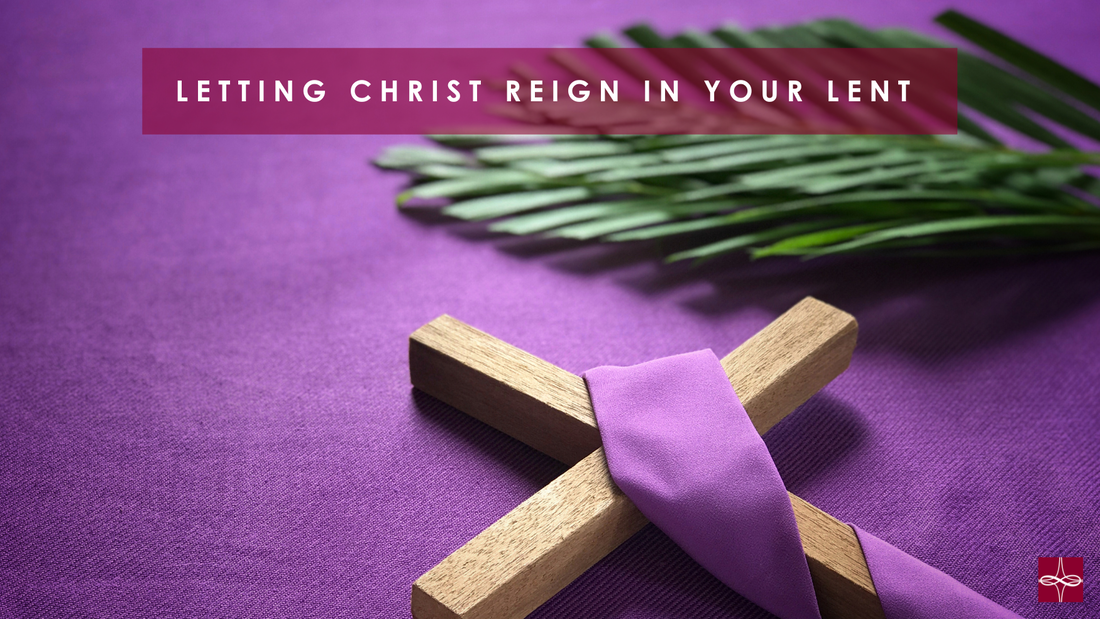

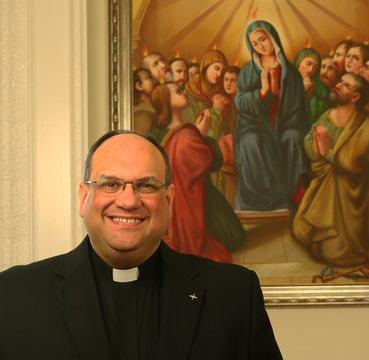
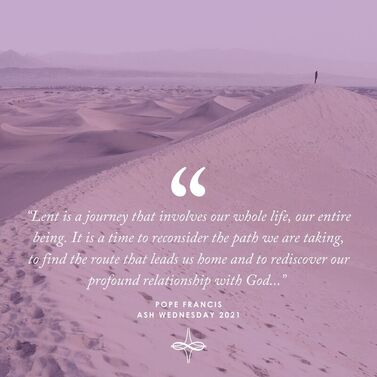
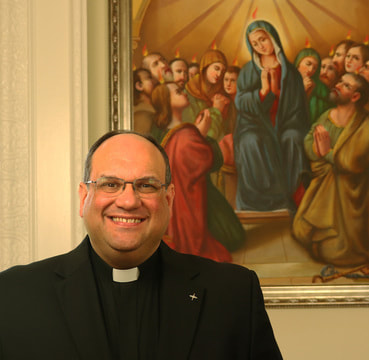
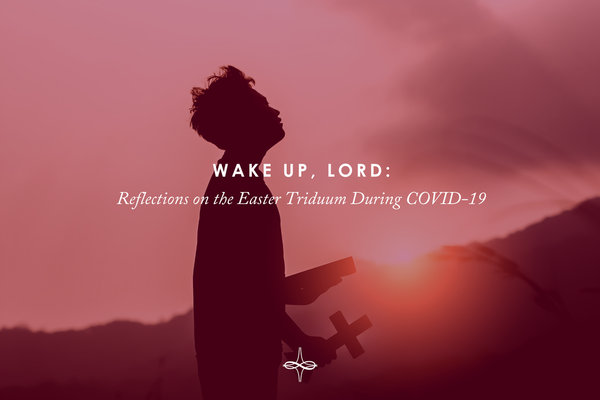

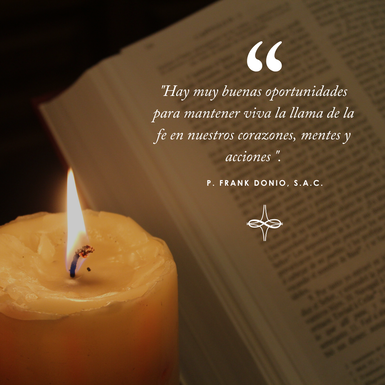
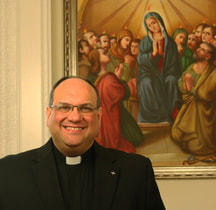
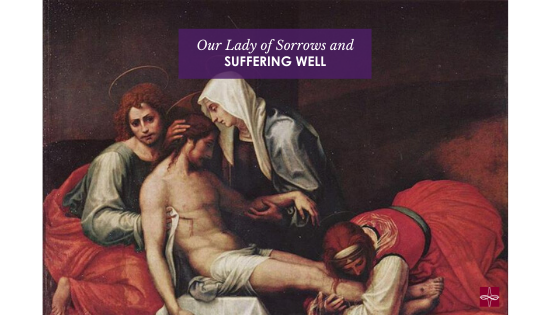



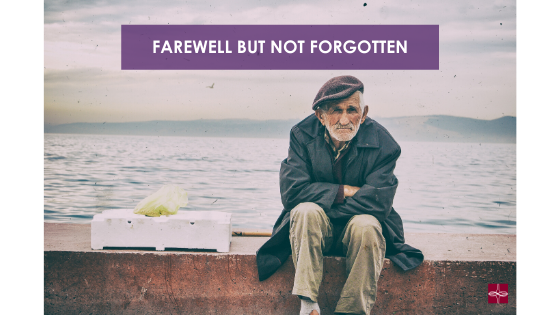

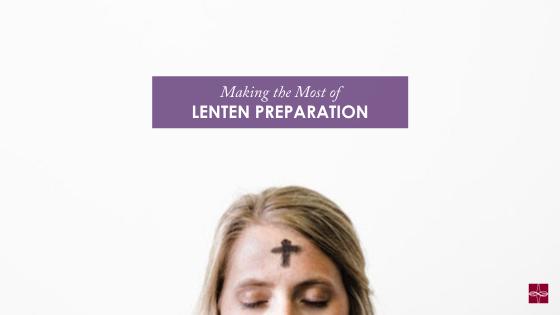

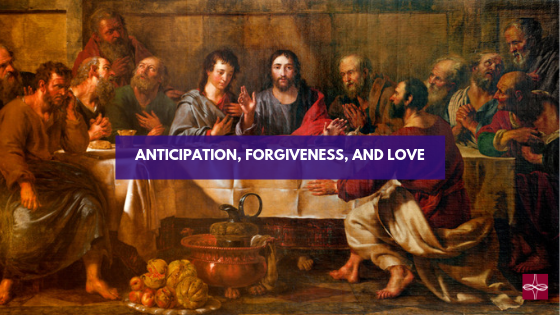

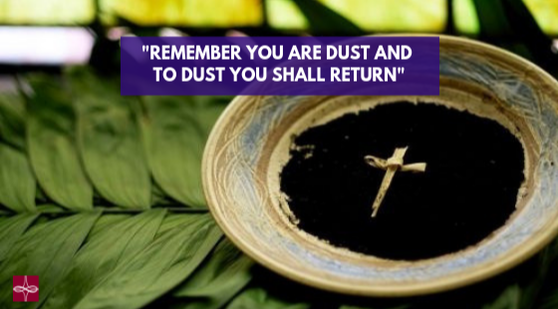

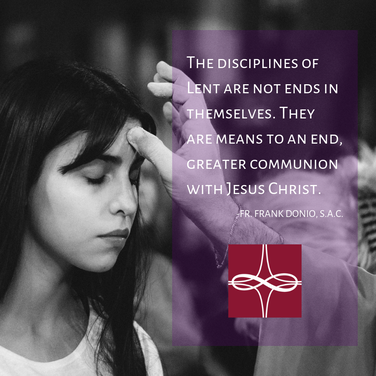
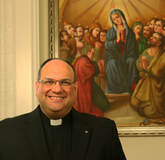
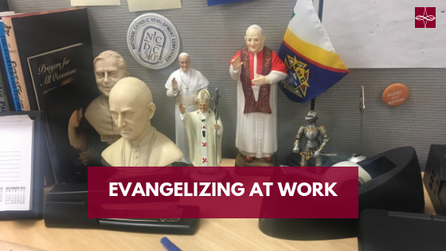

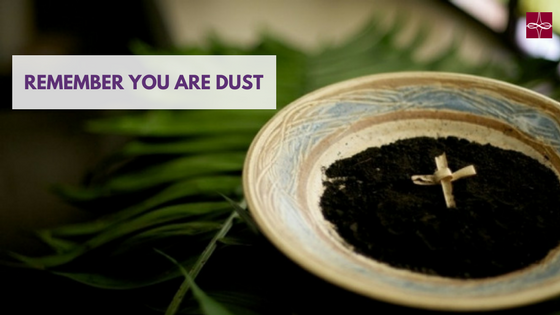

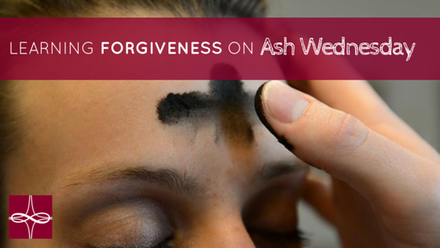

 RSS Feed
RSS Feed